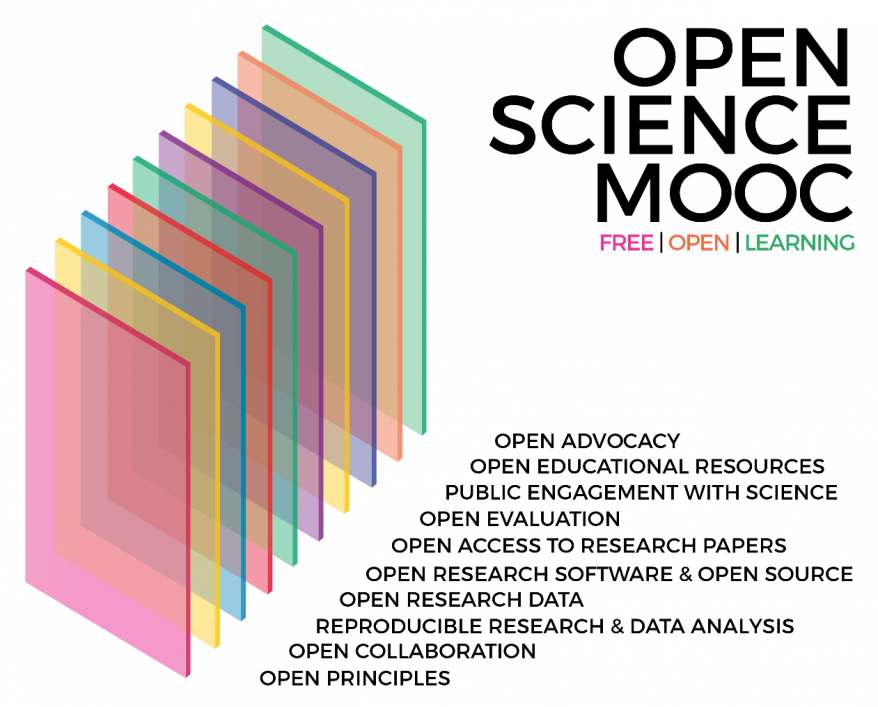Creating an open scientific revolution through peer-to-peer learning
What is Open Science?
If you haven’t heard the term Open Science before, that is totally okay. For many, it describes the process of doing research in a more collaborative and transparent manner. For others, it is about exposing the results of research to help make them more publicly accessible.
For me, it is both of these things. It describes a process of performing and communicating research that adheres to strong scientific principles, such as transparency and accountability, and strong human values around freedom, equity, and justice. I believe that simple acts such as sharing data, or making research papers more accessible, automatically make you more of an ‘open’ scientist. These are also things that I believe virtually every researcher inherently shares.
All of these things together help to describe a cultural shift, one that is very much ongoing, towards open science, open research, or open scholarship. Much ‘traditional’ research has not benefited from Web-based technologies that enable us now to perform and communicate research in a variety of powerful ways, and emphasise these core values and principles. There have been a number of barriers, therefore, in the widespread adoption of what we might call open research practices.
But can we change this through education, training, and support?
Welcome to the Open Science MOOC!
The Open Science MOOC, which stands for massively open online community, is a project based around people. It is a peer-to-peer community of practice, based around sharing of knowledge and ideas, learning new skills, and using these things to develop as individuals, so that research communities can grow as part of a wider cultural shift towards openness.
We are a mission-driven project to help set the default to ‘open’ for all global research, and driven almost purely by volunteers. Anyone can contribute, and anyone can participate.
We want to help create and foster a welcoming and supporting community, with good tools, teachers, and role-models. We are built upon a solid values-based foundation of freedom and equitable access to research. We see this route towards widespread adoption of best scientific practices as an essential part of the research process.
How does it work?
We operate the MOOC across several key platforms. The first of these is Eliademy, an open source learning and education platform. This is where you can enrol and participate in the different modules for the MOOC. At the moment, we have only one which is live, on Open Research Software and Open Source. Each module is totally free for anyone to join, and upon completion of several tasks and quizzes designed to amplify your knowledge and grow new skills, you’ll complete the course and become certified! We encourage users to share what they have learned in our forum.
We also produce cool videos with testimonials from real life researchers.

All development currently happens on our second key platform, GitHub. We have a completely open process here, where anyone can join our growing team and contribute as they see fit. You do not need to be a coder or GitHub guru for this; a simple willingness to share is all you need! All content we produce as part of the MOOC is available online and openly licensed: anyone can adapt, re-use, and share it as they wish.
The third is Slack, an instant messaging service, used to communicate updates to the MOOC, as well as sharing other opportunities such as events and funding. Shockingly, this is also totally open for anyone to join!
Together, what this creates is a vibrant and open community that anyone can participate in. The focus is around sharing, collaborating, and learning together, without restriction.
What’s the future?
In the near future, we expect to launch our next module on Open Principles. You can track all development as it happens, and join in again if you wish.
Now that the first module is also live and kicking, it’s time for us to focus more on communications. As such, we will be reaching out to research institutes to see if they are interested in having the different MOOC modules as part of their formal learning programs, for example at graduate schools.
If this is of interest, please do info [at] opensciencemooc.eu (get in touch)! We are constantly improving our design and workflow, as part of a continuous and iterative process based on feedback from the wider community. We invite you to be part of that, and help us make the future more open!



